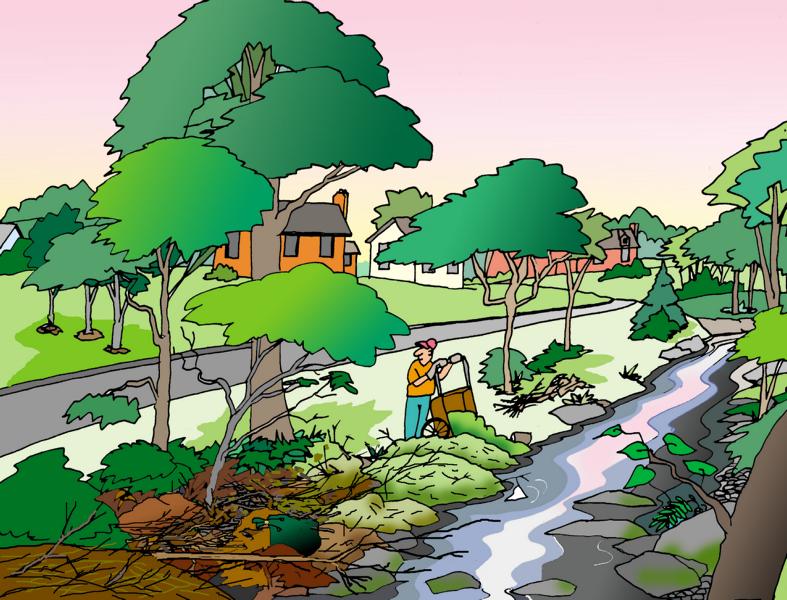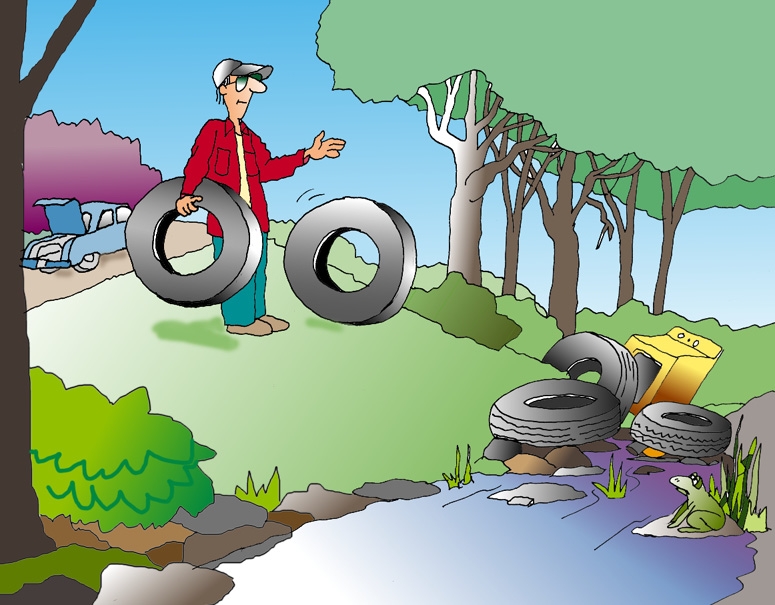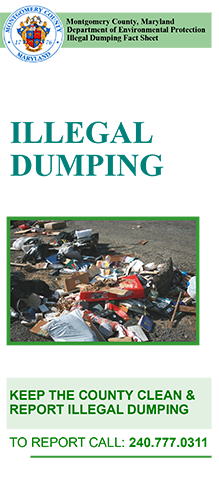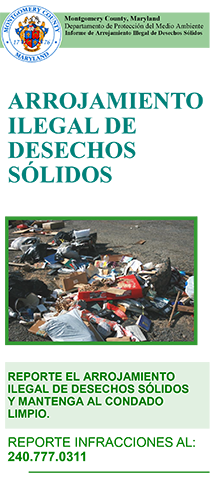Illegal Dumping

By definition, illegal dumping is depositing solid waste at a location other than a legally accepted facility.
Common examples of illegal dumping:
- Disposing of your trash in dumpsters or containers that you don't own
- Disposing of your trash along public roadways or in vacant lots, fields, wooded areas, stream valleys, parklands, or any other unacceptable location
- Dumping chemicals, pesticides, used automotive fluids and other pollutants into storm drains, into waterways, or on the ground
- Improperly disposing of yard waste (leaves, grass clippings, brush and natural wood waste) by throwing it over your fence or dumping it in a nearby wooded area
- Burning solid waste
- Burying solid waste
- Dropping off solid waste at any location other than a legally accepted facility
Report Illegal Dumping
If you see an act of illegal dumping, you can do something to help!
Step 1: Write down information about the illegal dumping. Please record:
- The exact location where the dumping occurred (Most important)
- The license plate number of the vehicle
- A description of the vehicle and person(s) involved
- The date and time of the incident
- Take photos of the dumped material(s).
Step 2: Contact the Montgomery County Customer Service line at MC311
- Call 311 (240-777-0311 from outside of the County; 7-1-1 for Maryland T-T-Y Relay)
A DEP investigator will return your call and follow up on your complaint. The information you report can help end illegal dumping and environmental abuse!
Disposing of Scrap Tires?
 Please follow instructions for how to dispose of personal and commercial tires.
Please follow instructions for how to dispose of personal and commercial tires.
Everyone Suffers Because of Illegal Dumping
- Farmers suffer because fields and crops are destroyed, fences are cut, livestock is disturbed, and trash must be removed.
- Businesses suffer because extra trash pickups can cost several hundred dollars each. (And those additional expenses are eventually passed on to consumers.)
- Entire neighborhoods suffer because trash not only is unsightly but also harbors rats and other vermin. It can lead to a decline in property values and a loss of community self-respect. And trash is a magnet for more trash—once dumping begins, it attracts additional trash.
- The environment suffers because toxic pollutants are released into streams, woodlands and wetlands. Illegal dumping and discharges can also harm wildlife.
- Public health and safety can be seriously compromised because sharp or toxic objects can cause infection or physical injury. Children and pets playing along polluted streams and waterways can be at risk.
Penalties for Illegal Dumping
Illegal dumping is a serious offense that can result in criminal prosecution. Every case of illegal dumping is investigated. Illegal dumpers are subject to a minimum $500 civil fine and possible criminal prosecution.
Illegal dumping can be costly, but the costs of legal disposal are minimal (if incurred at all). Montgomery County provides one of the most extensive solid waste disposal and recycling programs in the nation. Take advantage of the many facilities the County offers to properly dispose of, or recycle, your unwanted materials.

